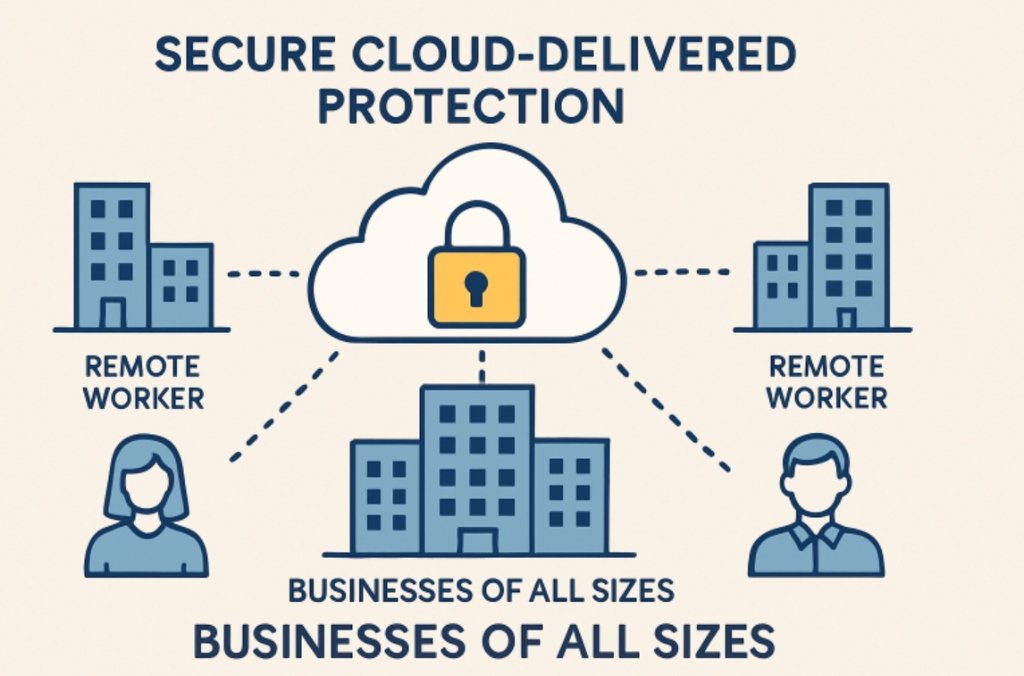As digital transformation accelerates across every industry, organizations are rethinking their approach to cybersecurity. Increasingly, businesses leverage cloud-delivered security services to amplify their operational effectiveness while protecting sensitive data. This strategic move increases adaptability and scalability and supports advanced threat defense. Modern, integrated solutions like the Versa NGFW solution enable businesses to quickly secure distributed environments, manage broad attack surfaces, and respond to new threats in real time.
Traditional security architectures struggle to keep up with cloud-first operations and remote workforces, so the shift to cloud-delivered security is rapidly accelerating. These solutions allow companies to efficiently deploy security controls wherever required—across data centers, remote branches, and employees working from anywhere. This means greater control, improved compliance management, and a strong defense against rising cyber threats for organizations.
Introduction
The enterprise security landscape has evolved rapidly as cloud computing and hybrid work models become the norm. Security can no longer be confined to the perimeter; it must be as distributed and agile as the business it protects. Cloud-delivered security solutions allow organizations to implement multilayered defenses at scale, delivering consistent protection across all digital assets while enabling innovation and growth.
This approach also frees organizations from the constraints of legacy hardware, enabling them to adopt zero-trust principles, automate defense responses, and rapidly innovate to outpace dynamic threat actors. According to a 2024 report by The Wall Street Journal, leaders see cloud adoption as the key enabler for resilience and business agility, especially when integrated with robust security strategies.
Benefits of Cloud-Delivered Security Services
- Scalability: Businesses using cloud-delivered security can dynamically scale protections as new offices open, data flows expand, or applications proliferate, without needing to make heavy new investments in physical infrastructure.
- Cost Efficiency: By shifting to a subscription or consumption model, organizations avoid upfront capital costs and reduce reliance on costly systems and on-premises teams, leading to significant financial savings over time.
- Accessibility: Cloud-delivered services ensure security controls are consistently enforced, protecting users no matter where they access business systems—from headquarters, branch sites, or remote locations. This accessibility is essential in the era of remote and hybrid workforces.
Across industries, organizations adopting cloud-based security are experiencing significant, measurable improvements in operational resilience and agility. The ability to detect and respond to cyber threats in real time, deploy solutions globally, and maintain consistent compliance standards has redefined enterprise protection. Many report reduced data breaches, improved uptime, and greater scalability as immediate outcomes. According to the Forbes Technology Council, integrating advanced cloud security strengthens defense systems and accelerates digital transformation. This shift enables companies to innovate more freely, enhance customer trust, and minimize risk exposure across increasingly complex, interconnected digital ecosystems worldwide.
Enhanced Protection Against Cyber Threats
Today’s cyberattacks are fast, complex, and exploit global attack surfaces that can easily overwhelm traditional defenses. Cloud-delivered security platforms give organizations access to real-time threat intelligence, automated updates, and adaptive defenses. These systems constantly monitor the threat landscape, applying security patches and new models without the delays associated with on-premises equipment.
According to a recent Gartner report, enterprise spending on cloud security is now outpacing investment in all other forms of security, reflecting mounting concerns over ransomware, advanced phishing attacks, and identity compromise. As adversaries grow more sophisticated, cloud-delivered security empowers organizations to defend against zero-day attacks with greater speed and precision.
Seamless Integration with Existing Systems
Transitioning to cloud-delivered security no longer requires completely overhauling existing infrastructure. Modern security platforms are designed for interoperability, enabling organizations to protect valuable legacy systems while adopting cloud-based models at their own pace. These solutions feature seamless integration through APIs, software-defined networking, and unified management dashboards that centralize monitoring and control. This hybrid flexibility allows IT teams to maintain consistent security policies, streamline workflows, and improve response times across diverse environments. By combining on-premises resilience with cloud agility, businesses can strengthen their cybersecurity posture while achieving greater scalability, visibility, and operational efficiency throughout their digital transformation journey.
Hybrid Cloud: Bridging On-Premises and Cloud Security
Hybrid-cloud approaches are increasingly popular, combining on-premises protections with cloud-based scalability. Businesses can tailor their security deployments, building highly resilient infrastructures that adapt as applications and data migrate to the cloud. An article from Security Today explores how organizations successfully manage hybrid environments, ensuring robust protection throughout the transition.
Addressing Data Privacy and Compliance Challenges
Adopting cloud-delivered security services raises critical questions about data sovereignty, privacy, and regulatory compliance. Organizations must carefully vet their cloud providers, reviewing contractual terms, certifications, and audit processes to ensure alignment with standards such as GDPR, HIPAA, and regional data localization laws.
Effective governance frameworks and strong vendor relationships are vital to safeguarding sensitive customer and business information. Businesses should also regularly monitor updates to regulations and best practices, checking provider performance against compliance benchmarks to maintain trust and avoid legal pitfalls.
Conclusion
Cloud-delivered security services transform how organizations safeguard their digital ecosystems, providing scalable, adaptive, and continuously updated defenses against evolving cyber threats. Unlike traditional on-premises solutions, these services integrate seamlessly with cloud infrastructure, offering real-time threat detection, automated response, and centralized visibility across networks and endpoints. Beyond enhanced protection, they empower businesses to innovate confidently, accelerate digital transformation, and maintain operational agility without compromising security. These solutions simplify compliance management and data privacy oversight by embedding regulatory controls into daily operations. As cyber risks grow more sophisticated, adopting cloud-based security becomes a technical upgrade and a strategic investment, enabling organizations to pursue growth, resilience, and competitive advantage in today’s fast-moving digital economy.

